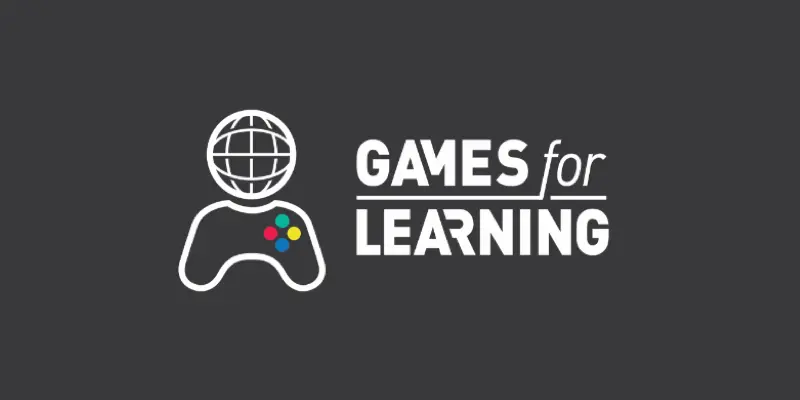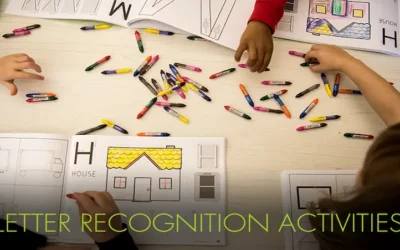Early education is the cornerstone of a child’s intellectual journey, paving the way for lifelong learning. In today’s dynamic educational landscape, the integration of interactive games serves as a catalyst, igniting curiosity and fostering a solid educational foundation in kindergarteners.
These games transcend traditional teaching methodologies, offering an engaging and immersive learning experience that resonates deeply with young minds.
Table of contents
- The Importance of Early Education through Interactive Games
- The Role of Technology in Enhancing Kindergarten Learning
- 1: Alphabet Adventures
- 2: Counting Carnival
- 3: Shape Safari
- 4: Color Quest
- 5: Word Wonderland
- 6: Science Seekers
- 7: Rhyme Riddles
- 8: Storytime Spectacular
- 9: Time Travelers
- 10: Puzzles Playground
- Benefits of Kindergarten Learning Games
- Ensuring Online Safety
- Balancing Screen Time
- Conclusion
- Frequently Asked Questions (FAQ)
The Importance of Early Education through Interactive Games
The kindergarten phase is pivotal as it lays the groundwork for a child’s cognitive development. Interactive learning games for kids serve as indispensable tools that not only facilitate learning but also encourage independent thinking, problem-solving skills and critical thinking skills for kids.
By integrating play and education, these games create an environment where children eagerly explore and absorb knowledge while honing essential skills critical for future academic success.

The Role of Technology in Enhancing Kindergarten Learning
Technology stands as a catalyst for educational evolution, reshaping how young learners engage with information. These learning games leverage technological advancements, delivering a multifaceted approach that complements traditional teaching methodologies. The immersive nature of these games captivates children’s attention, fostering a deep-seated understanding of various subjects in a manner that feels more like play than study.
These are 10 best free learning games for kindergarteners:
1: Alphabet Adventures
Alphabet Adventures, a captivating learning game, doesn’t merely focus on letter recognition and phonics; it intertwines these fundamental skills with interactive storytelling and puzzles, ensuring an engaging learning experience for every kindergartener. Its vibrant graphics and lively characters make the exploration of letters and their sounds an exciting adventure, captivating young learners and making the learning process enjoyable and memorable.
2: Counting Carnival
Counting Carnival not only introduces numerical concepts but also embeds these notions into real-life scenarios, making math an accessible and enjoyable subject for young minds.
The interactive nature of Counting Carnival not only aids in numerical skill development but also introduces fundamental mathematical concepts through captivating activities.
Through its interactive gameplay and colorful visuals, this game transforms abstract numbers into tangible, relatable concepts, fostering a love for math from an early age and establishing a solid foundation for future mathematical endeavors.
3: Shape Safari
Shape Safari transcends the mere identification of shapes; it delves deeper, encouraging spatial exploration and problem-solving through intriguing challenges and visual puzzles. Its immersive approach doesn’t just teach shapes; it cultivates a spatial understanding that extends beyond the screen, enriching a child’s perception of the world around them.
4: Color Quest
Color Quest transcends the boundaries of a standard color-learning game by encouraging creativity and artistic exploration. Through activities like color mixing and interactive art sessions, this game not only enhances color recognition but also nurtures a child’s innate creativity, providing a holistic learning experience that extends beyond basic color identification.
The incorporation of color mixing and artistic elements within the game serves as a platform for self-expression and artistic exploration, fostering a holistic learning experience which helps personal development in kids.
5: Word Wonderland
Word Wonderland’s innovative approach doesn’t limit itself to vocabulary expansion; it intertwines word recognition with interactive storytelling, making the journey of language acquisition a captivating adventure. Through engaging narratives and word-based puzzles, this game sparks curiosity and encourages children to explore the diverse realms of language, paving the way for confident readers and communicators.
6: Science Seekers
Science Seekers doesn’t just present scientific concepts; it immerses children in interactive experiments, fostering a sense of wonder and curiosity about the natural world. Through hands-on activities and engaging experiments, this game encourages young learners to question, observe, and discover, laying the groundwork for a lifelong appreciation and understanding of science.
7: Rhyme Riddles
Rhyme Riddles goes beyond teaching rhyming words; it encourages children to create their own rhymes, fostering creativity and linguistic exploration. Its playful approach to sound recognition and word patterns not only enhances language skills but also ignites a love for language and self-expression in kindergarteners.
8: Storytime Spectacular
Storytime Spectacular doesn’t just offer a collection of stories; it encourages children to actively participate in storytelling, nurturing their imagination and narrative abilities. Through interactive storytelling sessions and creative prompts, this game instills a love for narratives and cultivates the art of storytelling, fostering confident communicators and creative thinkers.
9: Time Travelers
Time Travelers doesn’t merely teach time-telling; it integrates this crucial skill into daily activities for kids emphasizing its practical application. By weaving time-related challenges into relatable scenarios, this game helps children grasp the concept of time in a meaningful way, aiding in the development of essential organizational and time management skills.
10: Puzzles Playground
Puzzles Playground doesn’t just offer puzzles; it presents challenges that require critical thinking and strategic problem-solving. Through a variety of puzzles that progressively increase in complexity, this game cultivates resilience and logical reasoning, empowering children to approach problems methodically and creatively.
Benefits of Kindergarten Learning Games
These games not only enhance cognitive development but also foster social skills by encouraging collaboration and teamwork among young learners. By providing a platform for shared learning experiences, these games instill essential values of cooperation and communication, preparing children for future social interactions both in and out of the classroom.
Ensuring Online Safety
In addition to implementing parental controls and supervision, fostering open communication about online experiences is crucial. Encouraging children to ask questions and seek guidance when navigating online platforms promotes a safe and responsible online presence, ensuring a secure learning environment.
Balancing Screen Time
Setting guidelines for appropriate screen time involves considering a child’s overall routine, encompassing physical activities, social interactions, and varied learning experiences. Encouraging a healthy balance between screen time and other activities cultivates well-rounded development while ensuring that technology complements, rather than dominates, a child’s daily life.
Conclusion
Learning games for kindergarteners serve as dynamic tools that go beyond traditional education, embracing technology to create engaging and enriching experiences. By amalgamating entertainment with education, these games stimulate young minds, fostering holistic development and preparing children for a future filled with curiosity and continuous learning.
To get your hands on more educational and free resources on coding for kids, robotics for kids, financial education for kids, etc., do check out the BrightCHAMPS Page now!
Frequently Asked Questions (FAQ)
A1. Most learning games designed for kindergarteners offer a free version with optional in-app purchases or a premium subscription for added features. It’s essential to review the app’s details or settings to understand any potential costs or in-app purchase options before allowing children to play.
A2. Learning games for kindergarteners are typically tailored for ages 4 to 6, aligning with the developmental stage of children in this age bracket. However, parental guidance is crucial, as individual readiness and interests can vary.
A3. Parents can enhance online safety by choosing games from reputable developers with strong privacy policies. Additionally, enabling parental controls, supervising gameplay, limiting social interactions within games, and discussing internet safety practices with children are effective ways to safeguard their online experiences.
A4. Many learning games are designed in collaboration with educators to align with early education curricula, offering a supplement to classroom learning. They often focus on fundamental skills like literacy, numeracy, problem-solving, and critical thinking, aiding in reinforcing concepts taught in school.
A5. Learning games for kindergarteners promote various educational benefits such as improving cognitive skills, enhancing creativity, fostering social interaction, refining motor skills, strengthening literacy and numeracy foundations, and encouraging a positive attitude towards learning—all crucial aspects for early academic development.


 We are an army of educators and passionate learners from BrightChamps family, committed to providing free learning resources to kids, parents & students.
We are an army of educators and passionate learners from BrightChamps family, committed to providing free learning resources to kids, parents & students.
























